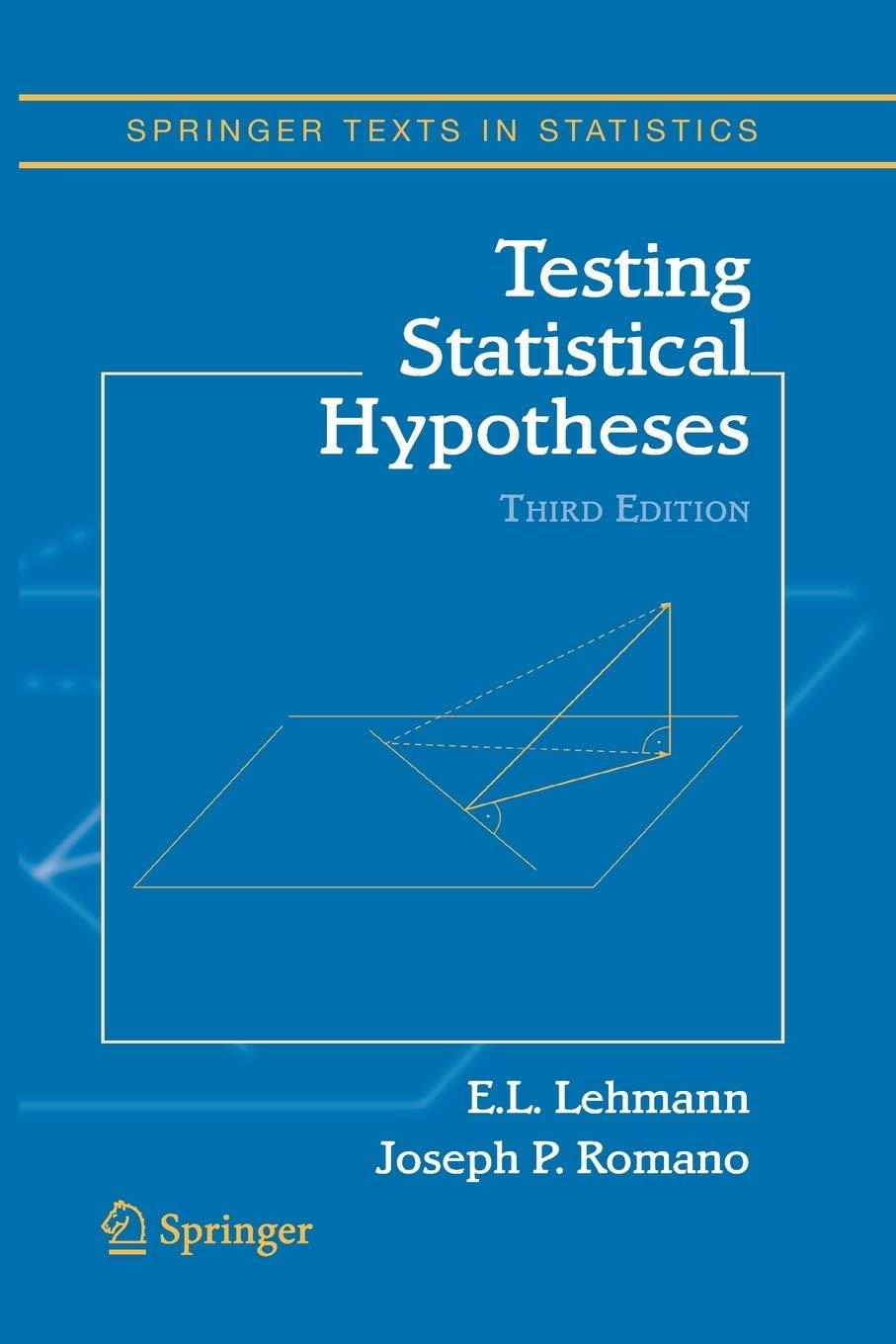Let (X, Y ) be distributed according to the exponential family dP1,2 (x, y) = C(1, 2)e
Question:
Let (X, Y ) be distributed according to the exponential family dPθ1,θ2 (x, y) = C(θ1, θ2)e
θ1x+θ2y dµ(x, y) .
The only unbiased test for testing H : θ1 ≤
a, θ2 ≤ b against K : θ1 > a or θ2 > b or both is φ(x, y) ≡ α.
[Take a = b = 0, and let β(θ1, θ2) be the power function of any level-α test.
Unbiasedness implies β(0, θ2) = α for θ2 < 0 and hence for all θ2, since β(0, θ2) is an analytic function of θ2. For fixed θ2 > 0, β(θ1, θ2) considered as a function of
θ1 therefore has a minimum at θ1 = 0, so that ∂β(θ1, θ2)/∂θ1 vanishes at θ1 = 0 for all positive θ2, and hence for all θ2. By considering alternatively positive and negative values of θ2 and using the fact that the partial derivatives of all orders of β(θ1, θ2) with respect to θ1 are analytic, one finds that for each fixed θ2 these derivatives all vanish at θ1 = 0 and hence that the function β must be a constant.
Because of the completeness of (X, Y ), β(θ1, θ2) ≡ α implies φ(x, y) ≡ α.]
Step by Step Answer:

Testing Statistical Hypotheses
ISBN: 9781441931788
3rd Edition
Authors: Erich L. Lehmann, Joseph P. Romano






